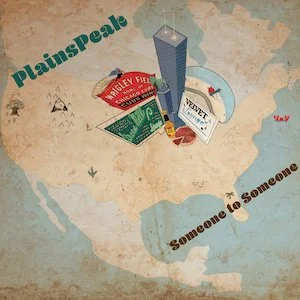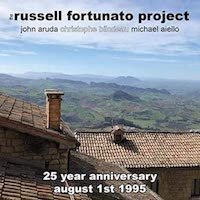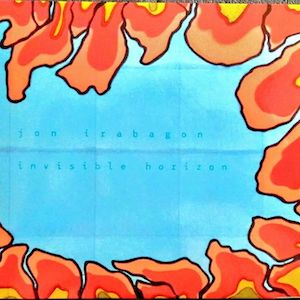Label: Irabbagast Records, 2025
Personnel - Jon Irabagon: alto saxophone; Russ Johnson: trumpet; Clark Sommers: acoustic bass; Dana Hall: drums.
A love letter to Chicago, Someone to Someone marks the debut of PlainsPeak, a finely tuned acoustic quartet led by saxophonist and composer Jon Irabagon. The album features six Irabagon originals, brought to life by seasoned artists deeply connected to Chicago and fully in command of their authentic selves: trumpeter Russ Johnson—reuniting with Irabagon 17 years after appearing on his debut Outright!—bassist Clark Sommers, and drummer Dana Hall. The project was conceived after Irabagon relocated to his hometown of Chicago, where he was born and raised, following nearly two decades in New York.
The title track, a love song dedicated to Irabagon’s family, opens the album in balladic, rubato mode with bowed bass as main support. Sommers holds the spotlight for thirty seconds before horns and drums join him. Then, it’s Hall who forges a dynamic, swampy corridor over which Johnson and Irabagon roam freely.
The frontline, whether threading chain-linked ideas or conjuring fervid, polyphonic near-cacophonies that delight the ear, radiates contagious energy. Both “Buggin’ the Bug”, an old blues march revitalized with swinging motion and emphatic melodic punctuation, and the awesomely coordinated “Malört is My Shepherd” showcase this spirit. The latter, referencing the traditional wormwood-based digestif with deep roots in Chicago, is elevated by Irabagon’s alto saxophone stretch, where he skillfully explores multiple sonorities of the instrument.
Cooked hot with shifting meters, the thought-provoking “At What Price Garlic” rides on magnetic grooves from the tightly interlocked bass and drums. Melodic crescendos and stirring solos strike a fine balance between tension and release. “Tiny Miracles” turns inward, carrying elliptical intensity, while “The Pulseman”, a snappy tribute to Hall and Chicago drummers, brings the album to a climactic close through playful staccatos and agile runs.
Irabagon is one of those amazing musicians and gifted composers with a broad interest in styles and sounds. Whether leading an A.I.-inspired nonet (Server Farm, 2025), engaging in exploratory duets (Blue Hour, 2024), or celebrating the vibrancy and lyricism of Chicago jazz—as he does here—he never fails to captivate.
Favorite Tracks:
01 - Someone to Someone ► 02 - Buggin’ the Bug ► 04 - At What Price Garlic


















